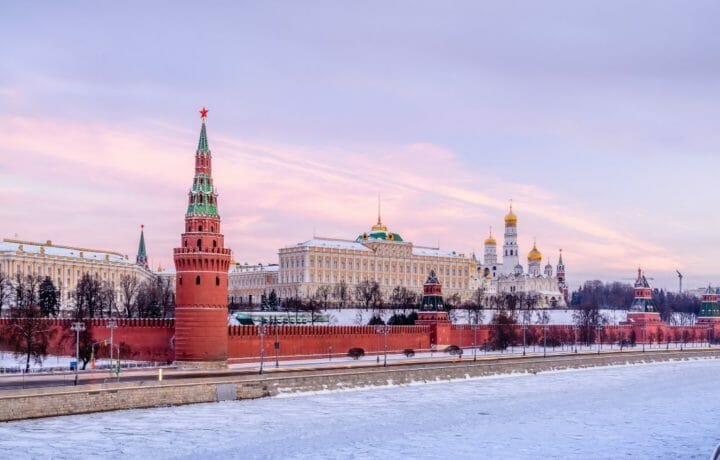President Biden recently visited with the U.S. intelligence community (USIC) and thanked them for their service to the nation and their candor in providing intelligence which “is invaluable to our ability to make informed strategic national security decisions.” The President noted how during his recent meeting with Russian President Putin, he could tell that Putin knew, “you’re better than his team and it bothers the hell out of him … he, as a consequence of you think we have capacities he may even exaggerate.” And the President was right, Putin continues to poke at the United States, no doubt hoping the backbone of the nation is made of the same ingredients one finds in the Gummi Worm and not of the steel, forged in the heartland.
The U.S. sanctions on March 2 for the poisoning and imprisonment of Navalny and the U.S. sanctions on April 15 designed to impose costs for harmful foreign activities by Russia were an unambiguous signal to the Russian government that the United States wasn’t going to just absorb their belligerence on the world stage or in bilateral relations.
Following these actions, Russia again demonstrated their desire to keep the bilateral relationship frosty when their foreign ministry ordered all non-U.S. staff (except for security personnel) out of the U.S. diplomatic mission to The Russian Federation no later than August 2. The U.S. obliged and on July 30, Secretary of State Blinken issued a statement in which he explained why the United States was forced to let go of 182 local employees and dozens of contractors at the diplomatic facilities in Moscow, Yekaterinburg, and Vladivostok.
Meanwhile, Russian Ambassador to the United States, Anatoly Antonov took to the media to shade the truth concerning the U.S. requirement that diplomatic personnel assigned to the United States (with some exceptions) are limited to five consecutive years of service, of which three may be on the initial diplomatic visa and the additional two via individual requests for extension. The impetus behind the Ambassador’s statement may be found in the fact that the Russians find themselves with 24 of their diplomatic staff with expiring visas in August. They are expected to depart by September 3.
The drawdown of the United States diplomatic mission has now put the number of U.S. personnel at approximately 120 across the Russian Federation. State Department spokesman, Ned Price, explained on August 2 that the United States does not wish nor is it pursuing an escalation to the detriment of the U.S.-Russia bilateral relationship. Price went on to describe the current relationship as, “characterized by disagreement, by tension, by friction, and all of that is probably putting it lightly, that we need more communication rather than less. We think it is in our interest. We tend to think it’s in the interest of our two countries.” The context is that with the required drawdown of the U.S. diplomatic mission, services and engagement offered by the embassy are limited and a full-robust bilateral engagement is being affected.
Antonov, fanning the flames of controversy characterized the need for the 24 diplomats and their families to depart as “expulsions” in his interview on August 2 with the National Interest where he also put the number of diplomats awaiting visa renewals at 60 and who aren’t leaving the United States in fear they can’t return. Price noted that Ambassador Antonov, just didn’t get his facts right, “three-year limit on visa validity for Russians, is nothing new. When visas expire, as you might expect, these individuals are expected to leave the country or apply for an extension.”
The U.S.-Russia bilateral relationship can be expected to remain testy for the foreseeable future given the influx of Russian-based cyber activity. Activity, which President Biden subtly alluded to during the visit to the USIC on July 27, when he noted, “You know, we’ve seen how cyber threats, including ransomware attacks, increasingly are able to cause damage and disruption to the real world. I can’t guarantee this, and you’re as informed as I am, but I think it’s more likely we’re going to end up — well, if we end up in a war, a real shooting war with a major power, it’s going to be as a consequence of a cyber breach of great consequence.” The President continued how Mr. Putin knows he has a “real problem – he is sitting on an economy that has nuclear weapons and oil wells and nothing else”, which the President characterized as making Putin “even more dangerous.”




